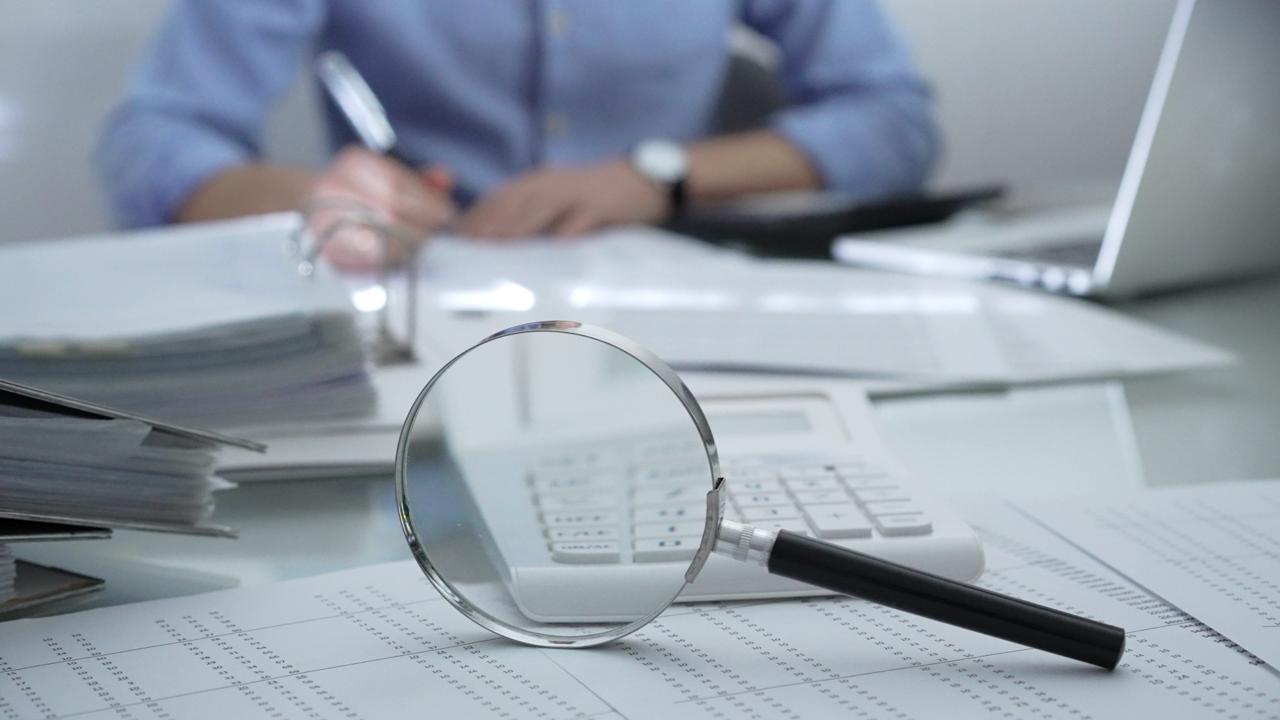Doing business inevitably involves risks, and one of the most common sources of problems is unreliable counterparties. Payment delays, shell companies, discrepancies between actual and legal data, or dishonest fulfillment of obligations, all of these can lead to financial losses and legal disputes. Therefore, conducting due diligence on a counterparty before entering into an agreement is not just a formality, but a necessary element of any company’s legal and financial security.
Even when there are long-term partnerships in place, it is important to periodically update checks, as information about companies and individual entrepreneurs can change: management, legal address, tax status, or involvement in litigation may be updated. Such changes can directly affect the fulfillment of obligations and the risk level for your business.
Counterparty checks in Belarus today are available using official sources and open databases, including the registries of the Ministry of Justice, the Unified State Register of Legal Entities and Individual Entrepreneurs, tax authority data, bankruptcy information, liquidation records, or enforcement proceedings. Equally important is the ability to interpret the obtained information correctly, not every discrepancy constitutes a violation, and not every note in a registry should automatically lead to refusal of cooperation.
AMBY Legal’s lawyers can comprehensively assess a counterparty’s reliability, from verifying legal status to analyzing financial stability and reputation. This approach not only helps prevent risks but also increases confidence in business decisions, especially when working with new partners or concluding major contracts.
In this article, we will explore why counterparty due diligence is necessary, which tools are available for businesses in Belarus, and what to pay attention to when analyzing information to avoid mistakes and protect your interests.
Why Counterparty Due Diligence Is Necessary
Counterparty due diligence is not a mere formality but an important element of risk management, especially in situations where even seemingly reliable companies can turn out to be insolvent or involved in questionable transactions.
Key risks when working with unreliable partners
Entering into an agreement with a counterparty unable to fulfill its obligations can result in direct financial losses: unpaid deliveries, missed deadlines, and the need to go to court to recover debts. Beyond that, there are reputational risks, cooperating with a company that has a questionable business reputation or is involved in litigation can negatively impact your business image. Tax implications should also be considered: if it turns out that your partner engaged in fictitious transactions, it could raise concerns with regulatory authorities and trigger additional audits.
How due diligence helps prevent losses and legal disputes
Thorough pre-checks allow you to identify warning signs in advance: ongoing lawsuits, enforcement proceedings, signs of financial distress, or liquidation. Analyzing data from open sources helps understand the counterparty’s stability and ability to meet obligations. This enables the company to timely adjust deal terms, request additional guarantees, or even refuse cooperation altogether, minimizing the risk of disputes and losses.
Why it is important to conduct checks both before and after a deal
Monitoring a counterparty’s reliability is not a one-time procedure. Even a reliable partner may eventually face financial difficulties or changes in ownership or management. Regular monitoring allows you to notice such changes in time and adjust your interaction strategy: modify payment terms, request performance guarantees, or terminate cooperation before debts arise.
In this way, counterparty due diligence serves as a preventive tool for business protection, helping to avoid financial and legal issues while building stable, transparent relationships with trustworthy partners.
Sources of Information to Use
Effective counterparty due diligence is impossible without a systematic approach to gathering information from reliable and official sources. The goal of such a check is to obtain an objective understanding of a company’s legal status, financial condition, and business reputation.
Government Registers and Official Databases
The first step should always be to verify information in the Unified State Register of Legal Entities and Individual Entrepreneurs (USR). Here, you can find out whether a company is registered, who its directors and founders are, its legal address, and whether the organization is undergoing liquidation or reorganization. These data help ensure that your potential partner legally exists and operates within the law.
It is also advisable to check license and permit registries if the counterparty operates in a regulated sector (e.g., construction, healthcare, or transportation). The absence of a required license is a serious risk signal.
Register of Persons Prohibited from Participating in Public Procurement
Another important source is the official register of individuals and companies banned from participating in public procurement. If a counterparty is included in this list, it indicates serious breaches of contractual obligations, calling its reliability into question. Even if you do not operate in the public procurement sector, the presence of a company in this registry warrants caution.
Verification through Tax, Court, and Enforcement Registers
It is equally important to ensure that the company has no outstanding tax liabilities and complies with tax obligations. Checking tax authority databases and publicly available information on tax compliance can reveal signs of financial distress.
Checking the Ministry of Taxes and Duties (MTD) Website
Special attention should be given to data on the website of the Ministry of Taxes and Duties of the Republic of Belarus. Here, you can verify:
- The existence of tax arrears.
- Registration for tax purposes.
- Information on cessation of activities or ongoing liquidation.
- Participation in schemes indicative of dishonest behavior (e.g., issuing fake invoices).
Even a minor tax debt or frequent changes in registration addresses is a signal for further analysis.
The next step is analyzing court decisions. Frequent lawsuits regarding debt recovery, contract termination, or non-fulfillment of obligations indicate an unreliable partner. It is also worth reviewing the enforcement proceedings database, which provides information on ongoing seizures, property arrests, and other restrictions.
Additional Sources: Media, Reviews, and Business Reputation
Official data should be complemented with reputational analysis. Media publications, client and counterparty reviews, and mentions in business communities help form a holistic picture of the company. If a partner is repeatedly mentioned in bankruptcy reports, lawsuits, or receives numerous negative reviews, caution is advised.
Particular attention should be given to social media and professional platforms, where one can see genuine employee reviews, business activities, and projects the company is involved in.
Thus, a comprehensive due diligence process should combine official sources and open data to obtain a complete and accurate picture of the counterparty. This allows for informed decision-making and minimizes the risk of financial and legal losses.
What to Check First
When conducting counterparty due diligence, it is important to systematically identify priority areas of analysis in order to quickly uncover key risks.
Registration Data and Counterparty Status
The first thing to focus on is the legal status of the company or individual entrepreneur. It is essential to ensure that the counterparty:
- Is officially registered and has a current legal address.
- Is not undergoing liquidation or bankruptcy.
- Holds valid licenses for its business activities (if the activity requires licensing).
This information can be obtained from the Unified State Register (USR), license registries, and the Ministry of Taxes and Duties website. Even minor discrepancies in documents or frequent changes of address are signals for further investigation.
Financial Stability and Outstanding Liabilities
The next step is to assess the counterparty’s financial condition, which includes:
- Reviewing balance sheets and financial statements (if the company is required to publish them).
- Checking for outstanding taxes, fees, and insurance contributions.
- Identifying potential signs of financial instability, such as debts to suppliers.
Timely detection of financial problems helps reduce the risk of the counterparty failing to fulfill its obligations.
Litigation, Bankruptcy, and Enforcement Proceedings
Analyzing legal risks is equally important. Reviewing court cases, bankruptcies, and enforcement proceedings provides insight into whether the counterparty has faced legal problems:
- Are there any ongoing or completed lawsuits?
- Have assets been seized or frozen?
- Has the counterparty been involved in bankruptcy or restructuring procedures?
This information gives a comprehensive picture of the partner’s legal and financial stability.
Management, Founders, and Their Connections to Other Companies
It is also important to study the company’s founders and management:
- Who owns and runs the company.
- Their involvement in other companies, especially those with questionable reputations.
- How transparent their business connections and entrepreneurial history are.
Such an analysis helps identify hidden risks that are not immediately apparent from registration data.
A systematic review in these areas allows you to quickly determine the counterparty’s reliability, minimize financial and legal risks, and establish secure cooperation.
How to Assess the Results of a Check
After gathering information about a counterparty, it is important to evaluate it systematically and draw conclusions about the partner’s reliability.
Signs of a Reliable Counterparty
A trustworthy partner typically demonstrates:
- Up-to-date registration data and legal address.
- Transparent financial reporting and no significant liabilities.
- No ongoing lawsuits or enforcement proceedings.
- Stable management and a clear ownership structure.
If all these indicators are in order, the risk level of cooperation is generally low.
Distinguishing Formal Discrepancies from Real Risks
Not all discrepancies are critical. Formal signs may include:
- Minor inconsistencies in documents (e.g., outdated addresses in databases).
- Changes in management that are already approved and registered.
- Absence of published financial statements where it is not mandatory.
Real risks are those that could affect the counterparty’s ability to fulfill obligations, for example:
- Debts to tax authorities or banks.
- Involvement in numerous lawsuits.
- Questionable reputation of the management or owners.
What to Do If Suspicious Data Is Found
If the check uncovers suspicious facts, you should:
- Request explanations and supporting documents from the counterparty.
- Assess how critical the risk is for your transaction.
- Limit or suspend cooperation until the situation is clarified.
- Involve legal professionals to analyze the situation and develop a safe strategy.
A comprehensive evaluation of the due diligence results allows you to distinguish minor formal discrepancies from genuinely dangerous factors, thereby reducing the risk of financial loss and legal problems.
Debt Recovery in Belarus
Resolve debt recovery issues in Belarus for companies and legal entities with professional legal support!
Due Diligence of Foreign Counterparties
Working with foreign partners requires a special approach, as access to information and business standards can differ significantly from local conditions.
Key Considerations When Working with Non-Residents
When cooperating with foreign counterparties, it is important to take into account:
- Differences in legal systems and corporate structures.
- Currency regulations and specifics of payments.
- Difficulties in obtaining official documents and financial statements.
- Cultural and language differences in business practices.
Sources and Databases to Use Abroad
For checking foreign counterparties, the following can be used:
- Company registries in the respective country (equivalent to a national business registry).
- Financial statements and credit ratings, if publicly available.
- International databases on court decisions and bankruptcies.
- News, publications, and feedback from the business community.
What to Pay Attention to in Cross-Border Transactions
In international cooperation, it is crucial to:
- Ensure that the company is legally registered and operates within its jurisdiction.
- Check tax status and currency restrictions on transactions.
- Assess the reputation of executives and owners, as well as their connections to other companies.
- Clarify contract terms, warranties, and liabilities to minimize risks in potential disputes.
Comprehensive due diligence of foreign counterparties reduces the likelihood of financial and legal risks and ensures safe cooperation in cross-border transactions.
Legal Support in Counterparty Due Diligence
Due diligence is not only about data collection but also about proper legal interpretation. A lawyer plays a key role in providing a comprehensive legal assessment of a partner and mitigating risks for your company.
How a Lawyer Supports Data Collection and Analysis
A lawyer can:
- Identify which data has legal significance and where to find it.
- Verify the authenticity of documents and information, including incorporation, financial, and court records.
- Assess the impact of identified facts on current and future transactions.
- Compare information against legal requirements, contracts, and internal company procedures.
Preparation of a Legal Opinion on Reliability
After the analysis, the lawyer prepares a reasoned opinion that outlines:
- Risks associated with cooperating with the counterparty.
- Recommendations regarding the terms of the transaction or the need to refuse cooperation.
- Possible protective measures, including guarantees and collateral.
Transaction Support and Protection of Company Interests
Legal support helps:
- Properly draft contracts and include protective clauses.
- Establish mechanisms for dispute resolution.
- Ensure the legality of transactions and reduce the risk of financial and reputational losses.
- Respond promptly to any violations by the counterparty.
Thus, involving a lawyer in counterparty due diligence minimizes risks, increases the safety of cooperation, and protects the company’s interests at all stages of the transaction.
Conclusion
Counterparty due diligence is a key element of safe business operations. It helps identify potential risks, assess the partner’s financial stability, and avoid legal disputes. However, data collection and interpretation require a professional approach and knowledge of legal nuances.
Our team is ready to assist with counterparty due diligence, conduct comprehensive analyses of potential cooperation, and provide well-founded legal opinions. With our support, you can make more informed decisions about partnerships and minimize risks for your business.
Contact us
If you have any questions related to counterparty due diligence in Belarus, we will be happy to help! Our long-term experience will help you choose a lawyer to represent your interests.
- +37529142-27-19 (WhatsApp, Viber, Telegram);
- info@ambylegal.by.







